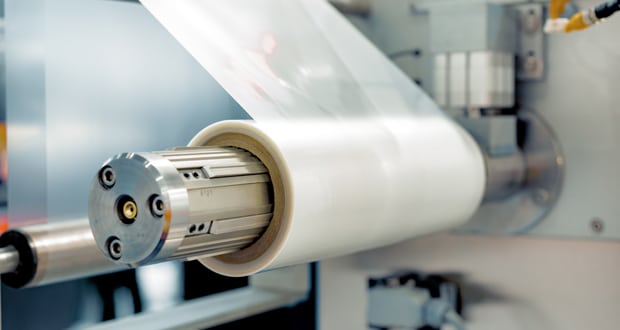
We need to talk about… plastic
Last year’s BBC series Blue Planet 2 highlighted the negative impact plastic is having on the world around us. We consider what the publishing industry is doing to reduce the usage of plastics.
National Geographic was one of the first publishers to tackle the issue, launching the Planet or Plastic? campaign, which has seen the magazine drop its plastic wrapper and replace it with a paper one. It’s also challenged its international partners, APL Media Limited included, which publish local-language editions of National Geographic, Traveller, Kids, to remove plastic wrappers by the end of next year.
The Professional Publishers Association (PPA) has a sustainability action group which looks at things such as the use of plastic and includes TI Media (formerly Time Inc) among its number.
It’s published guidance on the use of plastics for magazine wrapping. Its current recommendation is to reduce the thickness of plastic film and to label it using the On-Pack Recycling Label scheme to ensure readers are aware of how to recycle the film. The Children’s Publisher Forum, which has members such as DC Thomson Media, is also looking closely at the issue of plastics. John Fitzsimons
We talk to Matthew Jackson, managing director and publisher of APL Media Limited, on what the company is doing.
What is APL Media Limited’s position on plastics?
MJ: The widespread use of ‘single-use plastics’ is an issue that our industry needs to tackle. Currently the cheapest, most simple and effective way of wrapping newspapers and magazines to send to readers is in lightweight plastic film. Unfortunately, these can’t be reused, many councils will not recycle them and they often end up in landfill or worse, polluting our rivers and oceans.
We’re committed to trying to change the status quo and we’re actively looking for new ways to wrap our magazines. We encourage our colleagues across the industry to do the same and we’re also in discussion with the PPA, which is leading the industry conversations with government and suppliers.
One of the main challenges is the lack of technology and equipment available for publishers to make the switch and a large investment is needed to move forward at a rapid pace. The government is threatening to tax plastic use in the publishing industry which is short-sighted and only benefits the tax coffers. Tax breaks and financial incentives need to be offered to the mailing houses and printers to ensure they’re buying in machinery capable of offering a change to the industry.
Whilst tackling plastic use we also have to look at the larger picture as there’s no point switching from plastic to paper wraps if that creates larger carbon footprints and deforestation issues.
What will APL Media be able to do re: plastic packaging?
MJ: Our aim is to have switched to a paper wrap on all subscription magazines we send out by early 2019. We’re already in the latter stages of making this work.
How has APL Limited Media tackled plastic at events?
MJ: APL Media Limited is doing it’s best to limit the usage of plastic at all its events, for example, at the recent Masterclasses for National Geographic Traveller we partnered with HydroFlask to give all attendees a flask to use during the event. We’ve also switched to cloth bags too. However, it’s difficult to control all of the moving parts when it comes to events, as we then found out the venue’s lunch boxes featured plastic bottles.
What else should you be doing?
MJ: All companies should all be looking at what they can do to help the planet we live in, and try to find alternative sustainable solutions where possible to harmful practices. We’re as guilty as the next, and need to be better at recycling and reducing plastic use. This needs to be something everyone in the company has to be committed to.
Read about plastics inside our magazines
Travel Trends
